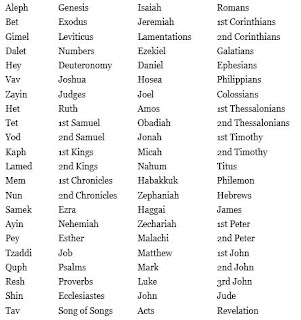The book of Isaiah was
written by the prophet Isaiah whose name means “God is my salvation”. This book
is often considered a miniature replica of the Bible because of its format. It
is comprised of 66 chapters (as the Bible has 66 books) which are divided into
two distinct halves. Amazingly the first half is 39 chapters of Israel’s
problems with idolatry – matching perfectly with the Old Testament’s 39 books
requiring judgment on immoral, idolatrous mankind.
If that seems only
coincidental to you, please notice that the New Testament embraces 27 books of
hope and redemption through Christ, and Isaiah’s final 27 chapters paint a
picture of the Messiah coming as king and savior. Amazing!
The major themes in this
book are, first, that Israel is in exile and there is divine judgment upon
their oppressors. Next we have the return from Babylon followed by the
manifestation of the Messiah in humiliation. Then there is the blessing of the
Gentiles, the manifestation of the Messiah in judgment, the reign of David’s
righteous branch in the kingdom age and finally, the new heavens and the new
earth. Isaiah looks toward the captivities and then beyond the captivities.
This book has a very clear
vision of grace. We see the Messiah in His Person and in His sufferings and
then we see the blessing of the Gentiles through Him.
As I’ve said many times
before the 66 books of the Bible line up in 3 rows with the 22 letters of the
Hebrew alphabet. Genesis, Isaiah, and Romans line up with the first Hebrew
letter, Aleph.
Genesis is the 1st book of
the Historical scriptures. Isaiah is the 1st book of the Prophets. Romans is
the 1st book of the Epistles. What unique connections do these three books have
with each other? First of all it is in only these three books that God is named
“El Olam” meaning “Everlasting God” or “Eternal God”. In Genesis 21: 33 we
find:
33 Abraham
planted a tamarisk tree in Beersheba, and there he called on the name of the
LORD, the Eternal God.
In Isaiah 40:28 it is
written:
28 Do you not
know?
Have you not heard?
The LORD is the everlasting God,
the Creator of the ends of the earth.
He will not grow tired or weary,
and his understanding no one can fathom.
Have you not heard?
The LORD is the everlasting God,
the Creator of the ends of the earth.
He will not grow tired or weary,
and his understanding no one can fathom.
We find the Greek
equivalent in Romans 16:26:
26 but now
revealed and made known through the prophetic writings by the command of the eternal
God, so that all the Gentiles might come to the obedience that comes from
faith—
NO WHERE ELSE in the
entire Bible do we find this particular name for God. It occurs only in the
books that match up to aleph, which, since God is the “Alpha and the Omega”,
the beginning and the end, makes perfect sense to me.
Another interesting connection is with the Hebrew word for “create." When we think of Genesis we usually think of the Creation story. The word for
create is used only with God as the subject in Genesis chapter 1.
These three aleph books
have the amazingly highest frequency of the creation word in each of the 22
book sets.
But wait, there’s more.
Look at Isaiah 64:8; 29:16; and 45:9:
8
Yet you, LORD, are our Father.
We are the clay, you are the potter;
we are all the work of your hand.
We are the clay, you are the potter;
we are all the work of your hand.
16 You turn things upside down,
as if the potter were thought to be like the clay!
Shall what is formed say to the one who formed it,
“You did not make me”?
Can the pot say to the potter,
“You know nothing”?
as if the potter were thought to be like the clay!
Shall what is formed say to the one who formed it,
“You did not make me”?
Can the pot say to the potter,
“You know nothing”?
9 “Woe to those
who quarrel with their Maker,
those who are nothing but potsherds
among the potsherds on the ground.
Does the clay say to the potter,
‘What are you making?’
Does your work say,
‘The potter has no hands’?
those who are nothing but potsherds
among the potsherds on the ground.
Does the clay say to the potter,
‘What are you making?’
Does your work say,
‘The potter has no hands’?
So, God created us in
Genesis and here in Isaiah we have the beautiful imagery of our Lord as the
Potter. We are the clay that He molds and forms. Take a guess now, which other
book in the entire Bible aligns with this creation/potter/clay metaphor? Did
you guess Romans? Here is Romans 9:20-21:
20 But who are
you, a human being, to talk back to God? “Shall what is formed say to the one
who formed it, ‘Why did you make me like this?’” 21 Does not the potter
have the right to make out of the same lump of clay some pottery for special
purposes and some for common use?
How absolutely marvelous
this is! I’ll save some other miraculous links for when we get to Romans. In my
research I found that several scholars referred to the book of Isaiah as “the
Romans of the Old Testament”. Interesting.


No comments:
Post a Comment
Note: Only a member of this blog may post a comment.